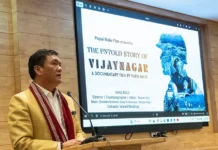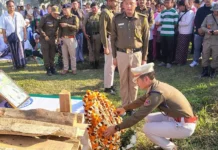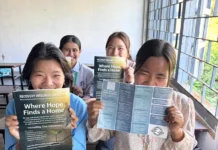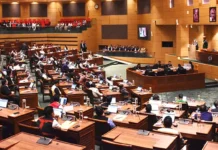ZIRO, 12 Mar: The GBPNIHE-NERC, in collaboration with the ArSRLM, organised a training programme focusing on ‘para-hydrology, with special reference to spring rejuvenation’, here in Lower Subansiri district on Tuesday.
The initiative, a part of the pilot project titled ‘Water security in Himalaya through spring-ecosystem assessment and management’, saw the participation of 41 individuals, and covered a wide array of topics, such as basic groundwater management, hydrology, springs and aquifers, spring rejuvenation, and springshed development.
GBPNIHE-NERC Scientist-C Tridipa Biswas stressed on the importance of para-hydrology training and community involvement in spring rejuvenation efforts.
Biswas underscored the need for villagers to “take ownership and responsibility for protecting and managing springs to ensure long-term water security in the region.”
GBPNIHE-NERC JPF Sahityesh Chandra presented insights into spring ecosystem management and various rejuvenation techniques, while Yachuli-based KVK’s soil science and agriculture chemistry specialist Dr Pema Khandu Goiba emphasised the significance of spring rejuvenation for sustainable land use practices and soil conservation efforts.
Water Resources Department Assistant Engineer Nani Tade shed light on rejuvenation of natural springs, and water security challenges. He provided critical insight into the current groundwater scenario in Ziro, addressing the challenges posed by groundwater scarcity.




